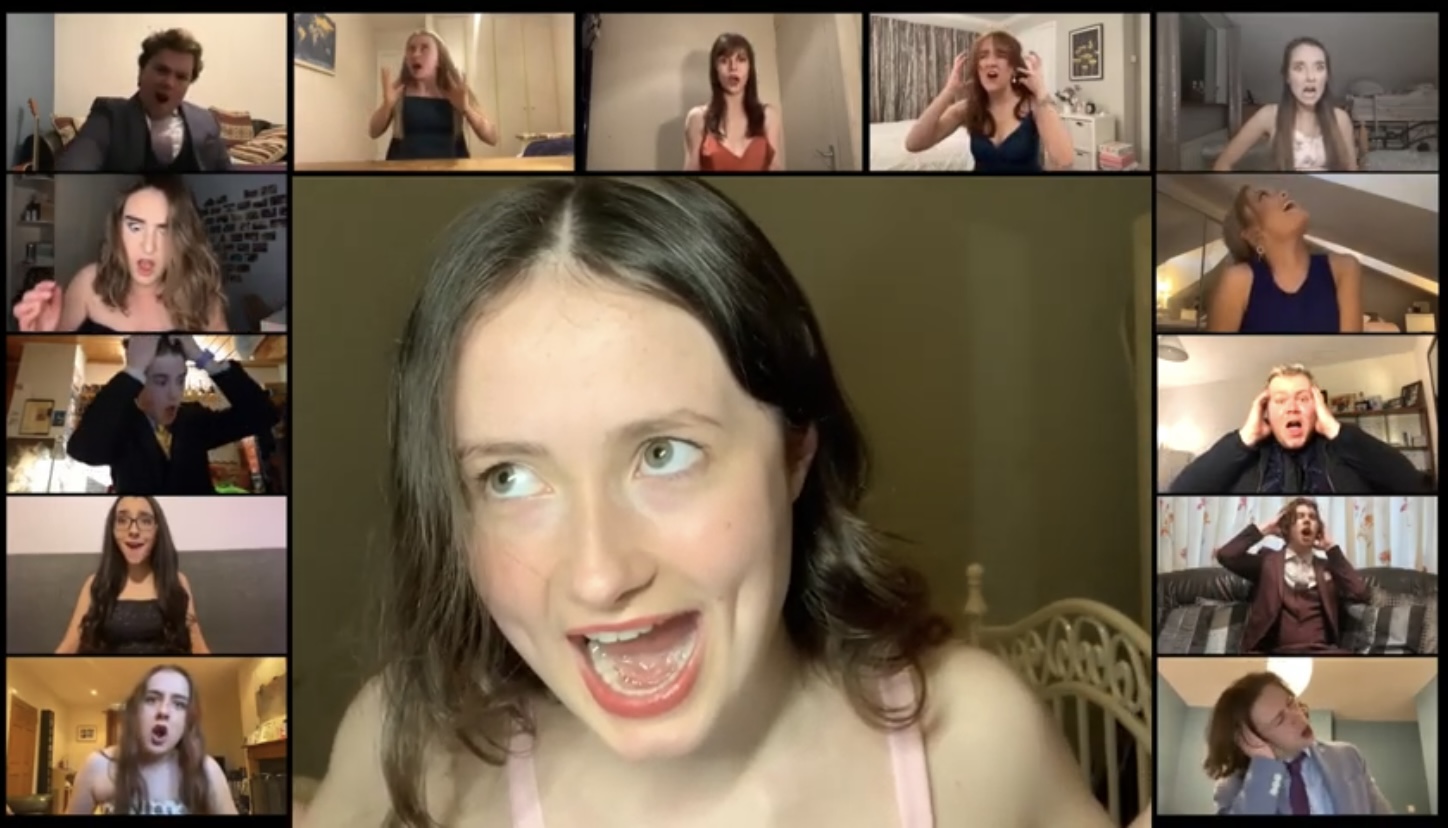
The words “virtual” and “musical” make a contradictory pair – it’s difficult to envision how the energy conjured by live musical theatre could be replicated online. Trinity Musical Theatre (TMT), however, has remained unfazed by this dilemma since the pandemic struck. In the past academic year, they have produced not one, but two well-executed online productions that have exuded enough passion, energy and spirit to match the real thing.
TMT’s latest undertaking, Carrie: The Musical, was presented on April 24th at the All-Ireland Musical Theatre Intervarsities, a competition which showcased 20-minute virtual shows from nine competing universities. The production was a hit, placing second in a range of fiercely competitive entries.
Staging such a successful show under challenging circumstances is no small feat, and Carrie: The Musical stands as a testament to the tenacious spirit of the society. The University Times spoke over Zoom with director of the show George Rohan, choreographer Grace Doyle Flaherty and stage and production manager Iain Synnott about the process of creating Carrie: The Musical virtually.
Discussing his role as director, second-year history student Rohan highlighted the fluidity that the online medium provided. “There wasn’t a template before we began, so there were so many different ways that the production could be presented.”
Rohan added that “it was amazing to work with an incredible production team – notably, editor Tom Dwan – and to experiment with the different design elements such as camera shots and set backgrounds”.
However, Rohan also acknowledged that despite the advantages of artistic flexibility, directing a cast over Zoom had its challenges. “The process was hard due to the fact that when you are directing in person, you can move the bodies and tell the cast exactly what you want them to do – something which is just not feasible over Zoom.”
For Rohan, organisation was key to the success of the project. “Even the smallest things like wifi cutting off eats into your rehearsal time.”
For this reason, Rohan stuck to strict schedules. “From the outset I had this really coherent five-week plan, which helped a lot”, he said.
Synnott, who is studying stage management and technical theatre at the Lir Academy, agreed with Rohan’s point about structure and meeting deadlines being an essential part of the online format. “A lot of my job as stage and production manager entailed hitting strict deadlines”, he noted.
“Usually, being in-person means you have the flexibility to chat and create personal connections with the cast and crew”, Synott reminisced. “However, this was hard to do online. So, the process definitely had a much greater emphasis on getting a schedule out as soon as possible and keeping strictly to it.” He added that, “thankfully the production team was beyond amazing.”
The choral and dance numbers in the final performance were particularly impressive, a testament to the amazing work of musical director Emily Hogarty and choreographer Grace Doyle Flaherty.
For second-year drama and spanish student Doyle Flaherty, maintaining the energy often lost in translation between the live action and Zoom setting was crucial. “A dance retains its quality and its liveness from the energy created in the rehearsal space”, she said. “In order to reflect that energy online, it was so important to have a structure.”
Doyle Flaherty also described her unique approach to Zoom’s technical challenges. “You are working with a lot of things against you on Zoom: there’s mirroring, a lot of screens and you cannot see very close-up”, she explained. “We always broke people into groups so we could achieve greater detail.”
Communication was also key to the process, Doyle Flaherty noted. “We were constantly keeping the cast up to date with what we were thinking, and we made sure that after every rehearsal we kept in touch.”
She stressed that “it is so hard to communicate energy and positivity across the internet, but we just wanted to make everyone feel as included as possible”.
Rohan and Doyle Flaherty both emphasised the importance of taking breaks in order to avoid the dreaded Zoom burnout: “We felt it was so necessary to take everyone out of that intense rehearsal zone for lighthearted social events.” They recall their Murder Mystery Night even as a personal favourite, saying: “This was an excellent way to give everyone a break and let them be themselves.”
While the online format came with challenges, Rohan, Doyle Flaherty and Synnott shared the same sentiments of hope and optimism when looking back on the experience. For Rohan, “it has been one of the greatest highlights of my Trinity experience so far”. Reflecting on the low moments throughout the pandemic, he said, “this show has given me the belief that I can still be creative despite the obstacles presented by lockdown”.
Synnott felt a real sense of community through his involvement with the show. “As a first year, I was nervous coming as a young member of the production team, but everyone was so nice and so inclusive”, he said. “I could not have asked for a better society to join.”
Doyle Flaherty attributed the success of the show to this tight-knit TMT community. “The whole thing was in true TMT fashion.” She acknowledged how easy it is to be put off by the restrictions and adapting to the challenges of an online musical, but noted that “as a team, we have proven that TMT will always find a way. All of us will go to the ends of the earth to keep creating, which is what makes it such a special society.”
Trinity Musical Theatre’s production of Carrie: The Musical is available to watch here.






